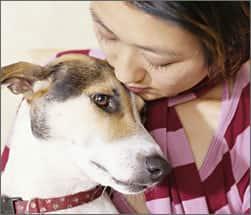
-
Find the right food for your petTake this quiz to see which food may be the best for your furry friend.Find the right food for your petTake this quiz to see which food may be the best for your furry friend.Featured products
 Small & Mini Mature Adult 7+ Dog Food
Small & Mini Mature Adult 7+ Dog FoodHill's Science Plan Small & Mini Breed Mature Adult Dog Food with Chicken is a complete pet food, specially formulated with ActivBiome+ Multi-Benefit Technology.
Tailored nutrition to support graceful ageing in small dogs. Specially made with a synergistic blend of nutrients for energy & vigor.Shop Now Perfect Digestion Small & Mini Adult Dog Food
Perfect Digestion Small & Mini Adult Dog FoodHill's Science Plan Perfect Digestion Small & Mini Breed Adult Dog Food with Chicken & Brown Rice supports ultimate digestive well-being & a healthy microbiome.
Shop Now Perfect Digestion Large Breed Puppy Food
Perfect Digestion Large Breed Puppy FoodPrecisely balanced nutrition with Hill's ActivBiome+ prebiotic blend actively contributes to supporting digestive health and overall well-being to help your pet feel their best
Shop NowFeatured products Hairball & Perfect Coat Adult Cat Food
Hairball & Perfect Coat Adult Cat FoodHill's Science Plan HAIRBALL & PERFECT COAT Adult cat food with Chicken is specially formulated to effectively help avoid hairball formation in adult cats while promoting a beautiful coat. Thanks to its mix of essential Omega-6 fatty acids, this food benefits the cat's skin and fur keeping them healthy and shiny. Our Advanced Fibre Technology helps reduce hairballs by naturally promoting their passage through the gut. This food is formulated with high-quality protein for a perfectly balanced, great-tasting recipe.
Shop Now Kitten Food
Kitten FoodTender chicken chunks in gravy for kittens, with omega-3s for healthy eye & brain development and high-quality protein to support muscle growth. With balanced minerals to promote strong bones & teeth.
Shop Now Hypoallergenic Dry Cat Food
Hypoallergenic Dry Cat FoodHILL'S SCIENCE PLAN Hypoallergenic Adult cat food with egg & insect protein is a complete pet food for adult cat 1–6 years old. It's formulated for cats with delicate skin and stomach, with limited high quality novel protein sources & no grain.
Shop Now -
Dog
- Dog Tips & Articles
-
Health Category
- Weight
- Food & Environmental Sensitivities
- Urinary
- Digestive
- Joint
- Kidney
-
Life Stage
- Puppy Nutrition
- Adult Nutrition
- Senior Nutrition
Cat- Cat Tips & Articles
-
Health Category
- Weight
- Skin & Food Sensitivities
- Urinary
- Digestive
- Kidney
-
Life Stage
- Kitten Nutrition
- Adult Nutrition
Featured articles The Right Diet For Your Pet
The Right Diet For Your PetLearn what to look for in healthy pet food & nutrition, including ingredients, quality of the manufacturer, your pet's age, and any special needs they have
Read More Understanding Your Pet's Microbiome
Understanding Your Pet's MicrobiomeLearn what a pet's microbiome is, how it contributes to your pet's gut & overall health, and why nutrition is important in maintaining healthy microbiomes.
Read More Pet Food Storage Tips
Pet Food Storage TipsWhere you store your cat and dog food can make a big difference in the quality and freshness once it is opened. Here are some common questions and recommendations for optimal storage for all of Hill’s dry and canned cat and dog food.
Read More -


Is your dog vomiting after eating? When a dog throws up recently eaten food, you're rightfully concerned, but there are a few things that could be bothering his stomach.
First, cover the basics: Have you made changes to your dog's nutrition recently? Does he compete with other pets for food? Has he recently eaten grass? These are all possible reasons his stomach doesn't agree with him after dinner. Find out why they may make your dog sick and when you should bring him to the veterinarian.
Transitioning to a New Dog Food
Sudden changes to your dog's food may result in gastrointestinal issues, so switching dog food (varieties or brands) too quickly can upset his stomach. Above all, it's important to transition to a new dog food slowly, typically over 7-10 days. Before you make the decision to change dog foods, check with your veterinarian. If you continue to see signs of stomach issues or your dog does not stop vomiting, you should bring him in as soon as you can. He may have an allergy or food intolerance, or he may have a more serious problem (foreign body in the stomach, systemic disease, etc.).
If you've recently begun the transition to a Hill's® brand food, be sure to start small and gradually build up the amount until it's the only food you're only offering.


Tasty Tips
Quick Eating due to Anxiety
Although most pet parents assume that a dog vomiting after eating may have a sensitivity to the food, it isn't necessarily the case. Anxiety or fear may be the driving force to why a dog throws up after eating. Does your dog compete with other dogs in the house for food? This sense of territory can make him eat faster, which may overload his stomach and decrease the amount of saliva normally swallowed with the food that acts as a buffer. And just like us, nervousness and stress can make your dog feel queasy and increase acid in his stomach.
When dogs eat too quickly, they don't take the time to chew their larger pieces of kibble. They also ingest a significant amount of air, both of which can come back up by regurgitation or by vomiting. If possible, feed your anxious dog in a secluded area, without any other animals around. Start with small meals and gradually build back up to a normal-sized dinner once you see he's calmed down at each meal.

There can be other underlying issues associated with a dog's anxiety that can affect his ability to keep his food down. Have there been changes in the house that might have disrupted his routine? Have you moved lately or changed your work schedule? Changes like this can make your dog anxious, which can affect his digestive system. If you suspect that something like this could be why your dog is throwing up after eating, continue to show him you love him. Give him praise, pet and play with him, and reassure him that everything is okay. Slowly, over time he will adapt to the changes and get back to his old self. It is still important to monitor his eating habits to make sure that there isn't a larger issue at hand–if it is happening more than once every few weeks, you should consult your veterinarian. Vomiting due to other health concerns is more common than due to anxiety.
He Loves the Taste
Similar to anxiety eating, your dog may indulge too fast if he loves the taste of his food. There's nothing wrong with enjoying a meal, but you want to be sure your dog gets all the nutrition he can get without it coming back up.
One way to reduce this tendency is by feeding him smaller portions until you notice his intake naturally slows down. Another option is to serve your dog's meals spread out on a large flat plate or cookie sheet. This forces him to take longer to locate and ingest each piece, reducing the chances of him vomiting after eating. There are also special dog food puzzle toys that require him to work a little harder to get his food out. This can be good exercise for him, but also force him to eat more slowly. Just be sure to monitor that he is still eating all of his food, and doesn't get frustrated by his new meal delivery system.
He Recently Ingested Grass
While dogs may eat grass for a variety of reasons with no adverse effects, dogs that aren't feeling well for other reasons may eat grass and vomit their stomach contents, possibly removing whatever may have made them sick. Once your dog vomits the grass and food, he should feel better and shouldn't need any additional medical care if just a simple upset stomach. Just remember to keep your dog hydrated and watch him closely to ensure vomiting doesn't persist, and there is nothing else is wrong with him.
If your dog simply cannot stop vomiting after eating food and grass, bring him to the vet or emergency animal clinic as soon as possible. There could be something else wrong. He may have infectious or systemic disease, he may have a foreign body or even a twisted stomach. Whatever the case, quick attention will make him feel better.


Erin Ollila believes in the power of words and how a message can inform—and even transform—its intended audience. Her writing can be found all over the internet and in print, and includes interviews, ghostwriting, blog posts, and creative nonfiction. Erin is a geek for SEO and all things social media. She graduated from Fairfield University with an M.F.A. in Creative Writing. Reach out to her on Twitter @ReinventingErin or learn more about her at http://erinollila.com.
Related products

Hill's Science Plan Perfect Digestion Small & Mini Breed Adult Dog Food with Chicken & Brown Rice supports ultimate digestive well-being & a healthy microbiome.

Hill's Science Plan Small & Mini Breed Mature Adult Dog Food with Chicken is a complete pet food, specially formulated with ActivBiome+ Multi-Benefit Technology.
Tailored nutrition to support graceful ageing in small dogs. Specially made with a synergistic blend of nutrients for energy & vigor.

Hill's Science Plan Large Breed Adult Dog Food with Lamb & Rice is a complete pet food, specially formulated with ActivBiome+ Multi-Benefit Technology.
This food is specifically designed to fuel the energy needs of large breed dogs during the prime of their life.

Precisely balanced nutrition with Hill's ActivBiome+ prebiotic blend actively contributes to supporting digestive health and overall well-being to help your pet feel their best
Related articles

Discover how the field of dog science is giving us more and more insights into the inner workings of our furry best friends.

Discover the causes, signs, and treatments of kidney disease in dogs and find methods of supporting your dog's kidney health. Learn more at Hill's Pet South Africa.

Dog obesity is a significant problem - learn more about helping your dog become trimmer and healthier through improved nutrition.

Learn about snake bites on dogs, including clinical symptoms to look for, what to do if you think your dog was bitten, and treatment & prevention options.

Put your dog on a diet without them knowing
Our low calorie formula helps you control your dog's weight. It's packed with high-quality protein for building lean muscles, and made with purposeful ingredients for a flavorful, nutritious meal. Clinically proven antioxidants, Vitamin C+E, help promote a healthy immune system.
Put your dog on a diet without them knowing
Our low calorie formula helps you control your dog's weight. It's packed with high-quality protein for building lean muscles, and made with purposeful ingredients for a flavorful, nutritious meal. Clinically proven antioxidants, Vitamin C+E, help promote a healthy immune system.

